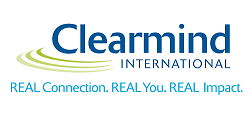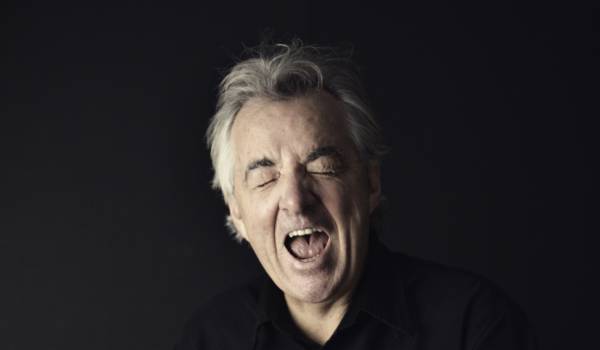Reflections on the Clearmind Co-Founder’s Legacy
When Duane O’Kane is described as, “that man with snowy hair, crinkly smiling eyes and a booming belly laugh” – you know how true that is. For those of you who don’t know him (yet), you might guess I’m describing Santa Claus. And, let’s face it – they really aren’t that different.
Both of these men work with all of their might, year-round, to bring connection, joy and peace into the world. They have hundreds of people (or elves in Santa’s case) who have learned from them who also work to make the world a kinder more loving place. Both men love and respect their wives fiercely. They make play a priority. They have a bold and audacious vision. They revel in the wonder of the human spirit. (If Duane wore a little more red, and Santa played a little more tennis and guitar, we might have a hard time telling them apart.)
This year marks Duane’s 70th birthday. The Clearmind family can’t think of a better way to honour the man who made his vision a reality, than to tell his story. For Duane, storytelling and making music are acts of love and self-revelation. Stories are how he honours the mentors that shaped and inspired him, and it’s how he hopes others will remember him, too. “My worst fear is that everything disappears and it’s almost like it didn’t happen,” says Duane, vulnerably talking about his almost 30-year journey with Clearmind to date. “It’s important to me that what happened here remains a song that people hum.” Perhaps a song that sings, something beautiful happened here.
Many of you have heard Duane’s tender childhood stories of growing up in a violent, alcoholic home and how these experiences planted the seeds that grew into his life purpose. But there have been so many stories not told. Like, how Duane never meant to be a therapist. His love was making music, and he did anything he could to keep that dream alive, including going to school and working in therapy-focused environments, mostly to fund that dream.
But as he adventured in the world of the “human potential movement”, he started to come alive. “I remember in 1969, I was at SFU doing an Undergrad in Psychology, and I went to listen to Fritz Perlz talk,” he recalls. “As he worked with people in the room I just thought: What is this? Whatever this is, I am in for good.” From there Duane immersed himself in the world of therapy, taking any job he could get his hands on. One of those jobs was at a place called the Maples, where he got introduced to group/circle therapy for the first time. “It was vulnerable and magical,” recalls Duane. “I got to witness the depth of beauty and divinity in the human condition. I got to see what was possible and it was forever imprinted on me.”
He took what inspired him and boldly left his own mark on the institutions he worked for. One story stands out for Duane about his early days as a counsellor, while working at the Janus Centre. He remembers a particularly tense session with a family who had a severely anxious, deaf child who lived in residence at the centre. In the middle of the session the child ran out of the session and a short while later Duane found him in his residential room, lying on his bed, with a butcher knife pointed to his chest. When he saw Duane he said, “At 4 o’clock, I’m gonna kill myself!” and continued to repeat this over and over, his intensity rising. Duane glanced at the old flapper clock and it said 3:58pm. Without a clue about what to do, and with only two minutes to go, Duane did the only thing that came to mind – he unplugged the clock. Several minutes later the young patient realized what Duane had done and they locked eyes. Duane held the moment and the young boy began to laugh. “That moment shifted everything,” he remembers. “And I was able to take the knife away from him.”
This story, and many others about Duane, were repeated and passed down among fellow therapists (as teaching stories) as he became a more established and well-known therapist. He was revered for his creativity, audacity and willingness to play in the therapeutic space – like the time he found himself in the middle of a family therapy session where everyone was fighting so intensely that he lost all control of the room. “I went to the corner of the office and did a headstand,” he says, laughing heartily, remembering how this stopped the chaos in its tracks, and allowed him to take the therapist’s seat again.
“The very best thing I have to offer this world is who I am – just like I teach others,” he said, his voice passionately rising in his signature Duane O’Kane way. “I don’t rewrite myself to become some kind of marketing persona that is going to ‘work better’ — I don’t care about any of that. The only thing that works is for me to be me and for you to be you! And at that intersection is where we can meet and have a REAL relationship.”
Duane paused here to reflect on the “cowboy days” of therapy, which refers to a time which some label as more “wild and free” with its risqué interventions and processes. “Being a cowboy didn’t mean that you were being reckless,” he clarified about the past. “In fact, it was so far from it. There was a depth of check that went beyond rules, regulations and ethical considerations that encompassed a much greater territory. In those days I would be unconsciously checking things out, from my insides, to make sure they were safe.” In short, he learned now to listen his intuition to detect and create safety.
And while his sensitivity was a gift, it was also painful. In 1990, Duane hit a turning point of his life, and plummeted into a deep clinical depression. He lost everything – his then relationship, health, wealth, and his connection with himself. While this experience brought him to his knees, it also allowed him the biggest breakthrough of his life. “When it all burned down the only thing left was me and I got to feel okay, just as I was,” he said remembering those painful months. “I reached the ultimate self-forgiveness and there, I could finally say, “I love you” to myself and mean it.” Duane stopped, quietly contemplating that time for a few moments. “That profound pain? I didn’t just want to just ‘get over it’, I wanted to use it.”
And use it, he did. He channeled that pain into purpose and created Clearmind. In 1996 he met Catherine and she quickly became his love and his business partner. Together, they took Clearmind – its workshops, the PRAC Program and its international offerings – to heights he never imagined. “What she brought in, to couple with what I was doing, was so necessary,” he said about that pivotal year in his life. “I needed to meet her. I don’t know what I would have done, or where I would be, had I not met her.”
Today, Duane is eight years older than his father who also grappled with depression and made a very different choice, by committing suicide at the age of 62. “I feel deeply sad when I think about this,” said Duane with a soft catch in his throat. “I’m entering territory my Father never gave himself permission to enter. And I am meeting, in many ways, who my Father wanted to become, too.” Duane’s legacy has been to say yes to life, and fully live it.
Duane reflects on this time in his life so far. “When you become aware of the finish line and start to reflect on: what did I leave behind? what is important? You start reflecting on how well you loved.” He talks passionately about his thousands of clients and students and how they shaped him as much as he shaped them. He talks about Catherine, and the profound reverence and gratitude that he feels for their life and life’s work, “Sharing the awe and wonder of this journey with Catherine is fantastic. Sometimes we are working and I just pause and look at her and say, ‘look at what we get to do’.”
And then when he talks about Erin, Catherine’s daughter, his voice fills with an unmistakable affection. “I don’t have any children of my own – at least not that I know of,” he says with a twinkly grin, and a side story about how he donated to a sperm bank for several years in his 20s. “Having Erin was such a bonus. I don’t assume the mantle of father as I know she has one she loves. But I have been very fatherly in her life and that has been a blessing. She is such a profoundly special person to me and we have a connection that I never expected I would get to have.” He speaks with pride and love about his relationship with Erin, and then he pauses. “Do you know, she has never said no to me when I have said: ‘shall we sing a song?’ Never, not once,” he said, his hand resting on his heart. “She always sings with me… and that means everything to me.”
A final thought about his legacy.
“My personal and professional legacies don’t have much of a division in my mind,” Duane admits. “The machinery of it is that I hope Clearmind will last long after Catherine and I are both gone. But personally? I want someone to tell this story and hum the tune of this song that is my life.”
Undoubtedly, Duane O’Kane, something beautiful did happen here. And while the song is not finished yet, it already has a tune that so many will hum for years, and generations to come.


Hi Duane and Catherine,
Lovely to see and hear you in the trailer to your film – you both look gorgeous!
We have tried to buy the film but all our cards have been refused, maybe because we are in France?
Is there any way we can get it through Clearmind rather than Thrive? We will gladly send money your way if you are able to help…
Big love from Phil and me!
Suzanne